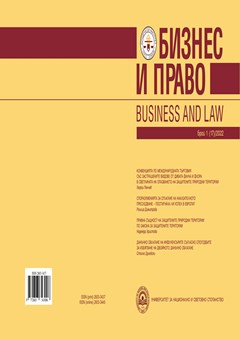СПОРАЗУМЕНИЯТА ЗА ОТЛАГАНЕ НА НАКАЗАТЕЛНОТО ПРЕСЛЕДВАНЕ – ПОСТИГНАХА ЛИ УСПЕХ В ЕВРОПА?
Author: Ралица Димитрова
DEFERRED PROSECUTION AGREEMENTS – HAVE THEY ACHIEVED SUCCESS IN EUROPE?
Ralitsa Dimitrova
Abstract
The deferred prosecution agreements (DPAs) have their origin in the USA. They soon became a useful enforcement tool preferred by both parties – the prosecution and the companies, because of their potential to deter, sanction and reshape corporate behaviour, while at the same time avoid, or at least, attenuate the adverse collateral consequences of criminal conviction.
According to a 2019 OECD study, non-trial resolutions have become a prominent way of enforcing serious economic offences, including the bribery of foreign public officials.
In the period 2014-2016 the United Kingdom and France became the first European countries that introduced into their national legislation the DPAs to step-up the fight against corruption and fraud involving legal persons. Competent authorities in both countries eagerly seized the new opportunity and now there are at least ten DPAs concluded in each of them. The present article analyzes the UK and French experience about the DPAs scope of application, the prerequisites for entering into a DPA, and the terms of the agreements. The extent of financial penalties as well as the rules for their calculation are studied. The requirement to introduce and/or reform the corporate compliance program under certain control is analysed too, as one of the most expressive features of the DPAs, aiming to reshape the corporate culture and prevent future corporate wrongdoing.
Bulgarian regulation of corporate liability for criminal offences and its implementation are still underdeveloped. The analysis of the foreign experience in the use of alternative enforcement tools in tackling economic and financial crime and particularly in the use of DPAs is necessary with a view to future development of corporate liability for criminal offences in Bulgaria.

